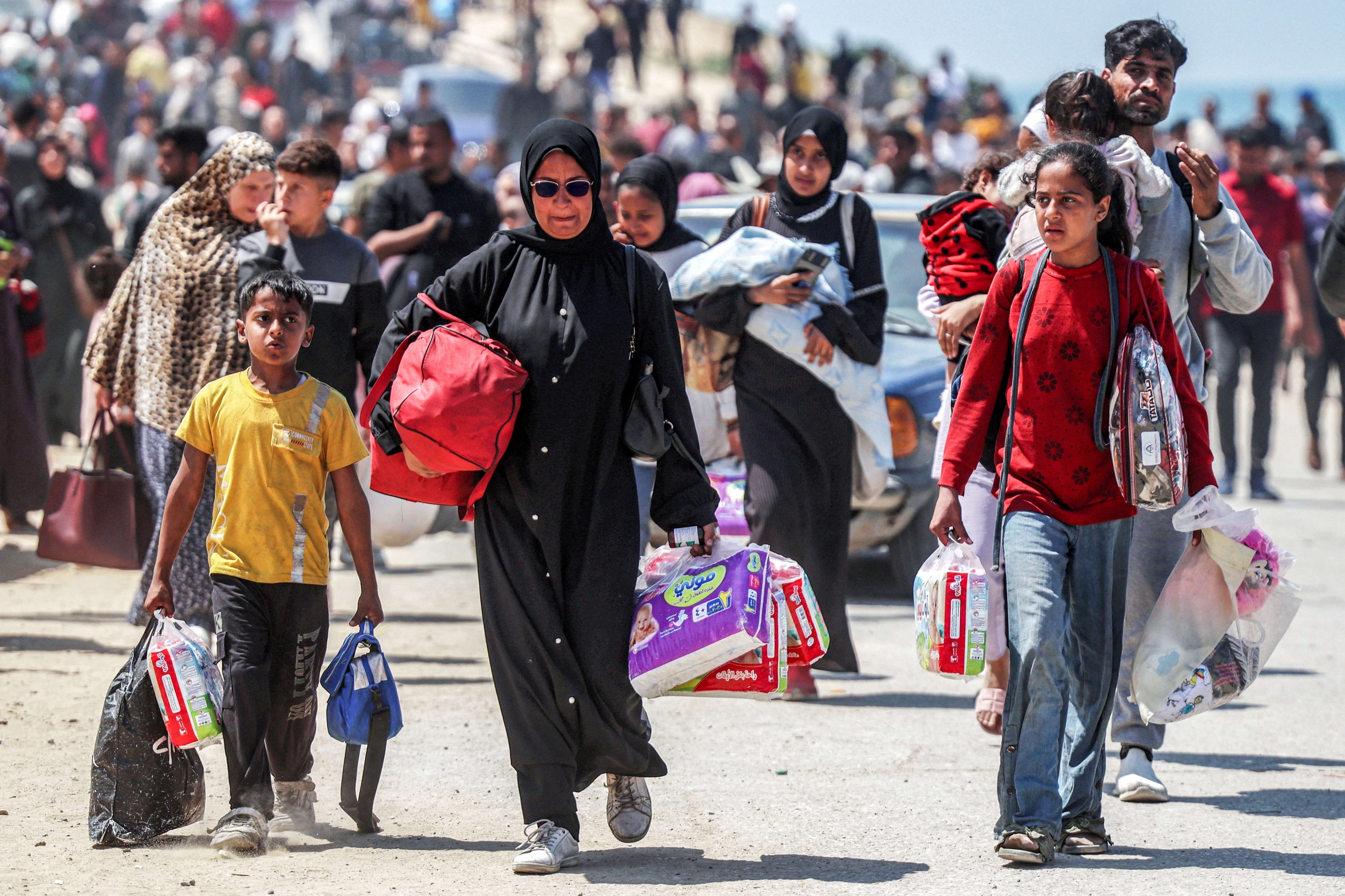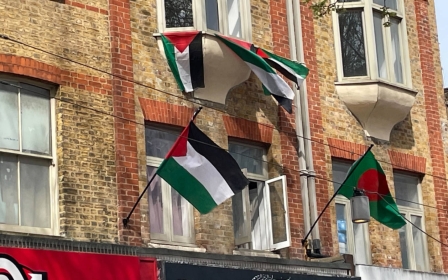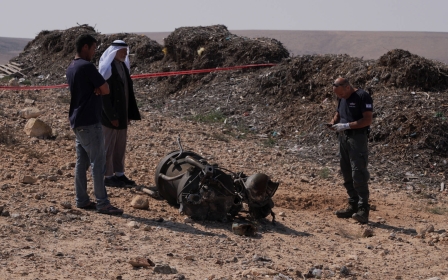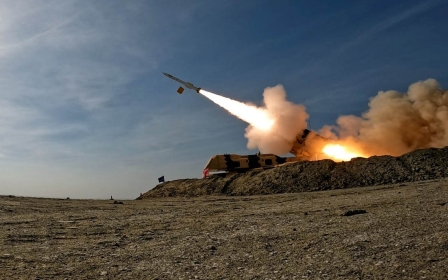War in Gaza: Palestinians in Gaza head north en masse after 'open checkpoint' rumours

Thousands of Palestinians flooded the coast road north on Sunday after hearing that some people had managed to cross a closed checkpoint towards Gaza City, despite Israel denying it was open.
An AFP journalist saw mothers holding their children's hands and families piling onto donkey carts with their luggage as they made the journey.
They hoped to cross a military checkpoint on al-Rashid road south of Gaza City, but the Israeli army told AFP that reports the route was open were "not true".
On the other side, desperate families waited for their loved ones in the rubble of the battered main city in Gaza.
Mahmoud Awdeh said he was waiting for his wife, who has been in the southern city of Khan Yunis since the start of the war on 7 October.
New MEE newsletter: Jerusalem Dispatch
Sign up to get the latest insights and analysis on Israel-Palestine, alongside Turkey Unpacked and other MEE newsletters
"She told me over the phone that people are leaving the southern part and heading to the north," Awdeh said.
"She told me she's waiting at the checkpoint until the army agrees to let her head to the north," he said, hoping she would be able to cross safely.
Refuge in Rafah
During the day rumours also spread that the Israeli army was allowing women, children and men over 50 to go to the north, a claim denied by the army.
Since Israel's assault on Gaza began, the army has besieged the territory, telling Palestinians to leave some areas and preventing them from moving across the narrow strip.
More than 1.5 million Palestinians have taken refuge in the southern city Rafah, according to the United Nations.
Several Palestinians said they came under attack on the route and AFP footage showed people ducking for cover.
The Palestinian official news agency Wafa said "Israeli occupation forces bomb(ed) displaced Palestinians as they were trying to return to the north of Gaza Strip through Al Rasheed street."
Wafa shared a video on X which Middle East Eye has not verified showing people running away from a blast.
Nour, a displaced Palestinian said: "When we arrived at the (Israeli) checkpoint, they would let women pass or stop them, but they shot at men so we had to return, we didn't want to die."
The Israeli military did not respond to a request for comment by the time of this article's publication.
'Too little too late'
Elsewhere in Gaza the fighting continued on Sunday after Iran launched a huge drone and missile attack on Israel overnight.
Iran's first-ever direct assault on Israeli territory came in retaliation for a deadly strike on Tehran's consulate in the Syrian capital.
The strike that Iran blamed on Israel left seven Revolutionary Guards dead, including two generals.
'The Iranian response came so late, after 190 days of war'
- Khaled Al Nems, Gaza resident
But in Rafah on Sunday, Palestinians said they were underwhelmed by Iran's attack on Israel.
"The Iranian response came so late, after 190 days of war," Khaled Al Nems said. "You can see our suffering."
"Their response is too little too late," he added.
Walid Al Kurdi, a displaced Palestinian living in Rafah, said that "Iran's attack on Israel is not really our business".
"The only thing we care about is going back to our homes," he said.
"We are waiting for the coming 48 hours to see if (Israel) responds to Iran, or if they are playing with us and want to distract attention away from Rafah."
Israel has said it plans to send ground forces into Rafah to eradicate remaining Hamas militants there.
Amid makeshift stalls in Rafah's crowded streets, Ahmed Abu Awdeh, another displaced person, said he "hopes Iran will pressure Israel to stop the war" in Gaza.
"Otherwise, let them (the Israelis) strike not only Iran but also Syria, Jordan, and all Arab countries" for not being able to end the war, he added.
Middle East Eye delivers independent and unrivalled coverage and analysis of the Middle East, North Africa and beyond. To learn more about republishing this content and the associated fees, please fill out this form. More about MEE can be found here.




